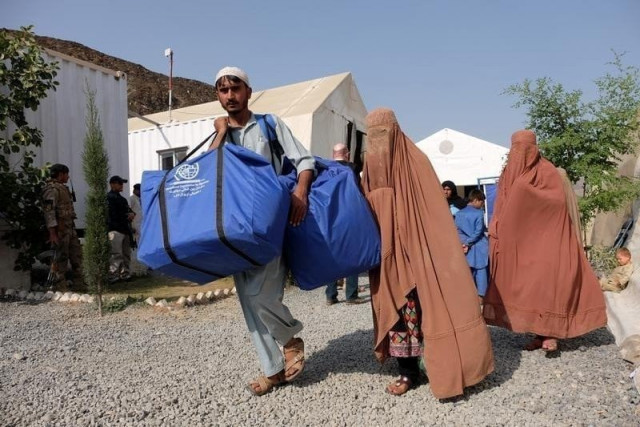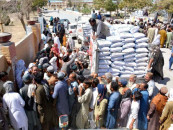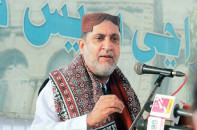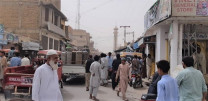30 Afghan families return via Torkham
K-P schedules key meeting to discuss expulsion of undocumented Afghan residents

The repatriation of Afghan refugees through the Torkham border continues, with yet another 30 families returning to Afghanistan on Friday.
These 30 families, comprised of 204 individuals, were transported in a convoy of 16 trucks to the Torkham crossing. At this crossing point, their documents were checked before they were granted permission to enter Afghanistan, marking another step in the ongoing process of facilitating the return of Afghan refugees to their homeland.
An official from the Afghan Commissionerate stated, “In just the past two days, we have witnessed the voluntary return of 60 families, accounting for approximately 554 individuals. This underscores the willingness of Afghan families to embrace the opportunity to return to their home country.”
The procedure for these returns involves Afghan families who possess UNHCR cards contacting a designated helpline located in Aza Khel, Nowshera. Through this helpline, they are given a specific date on which to reach the designated camp. From there, they are transported to the Torkham border, where they undergo a thorough screening process before embarking on their journey back to Afghanistan.
To support their reintegration into Afghan society, these returning refugees receive financial assistance, which includes $375 per person at the Torkham border, an additional $350 upon their arrival in Afghanistan, and a subsequent $350 payment three months later.
It’s important to note that this repatriation effort encompasses three distinct categories of Afghan refugees. The first category comprises individuals with UNHCR cards, who are considered refugees and receive the aforementioned financial support. The second category includes Afghan Citizen Card (ACC) holders, who are also recognized as legal refugees but do not receive financial aid upon their return.
Finally, the third category comprises undocumented refugees, who are considered illegal in their status.
“Until recently, undocumented refugees were not allowed to cross into Afghanistan but now government has allowed them to go back. The number of undocumented refugees is low in K-P and very high in Karachi and Punjab,” the official said, adding that Torkahm, Ghulam Khan Border and Chaman in Balochistan are the main crossing points for refugees.
“So far we have not seen any rush of undocumented refugees trying to go back but it would gain momentum in a few days,” he said.
On the other hand, preparations are underway to expel illegal Afghan refugees from Khyber-Pakhtunkhwa (K-P), and a crucial meeting has been scheduled for the upcoming week to finalize the necessary arrangements.
Official sources confirmed to The Express Tribune that this meeting will include key stakeholders such as K-P’s secretary of home affairs, senior police officials, and security personnel. During the meeting, the task assigned by the federal government will be thoroughly discussed and strategized.
“Afghan refugees’ repatriation in phases will be discussed and the arrangements on Torkham crossing will be assessed in this regard,” he said, adding that the start of the crackdown, arrest of the illegal immigrants and closing of all refugee villages will also be discussed.
On the other hand, home and tribal affairs department has sought the complete data of the illegal Afghans living in the province including refugees’ villages in the newly merged tribal districts.
Last month Pakistan decided to send back all the illegal Afghan refugees in a major policy decision, which is seen in the context of ongoing tensions between the two countries.
Published in The Express Tribune, October 7th, 2023.


















COMMENTS
Comments are moderated and generally will be posted if they are on-topic and not abusive.
For more information, please see our Comments FAQ